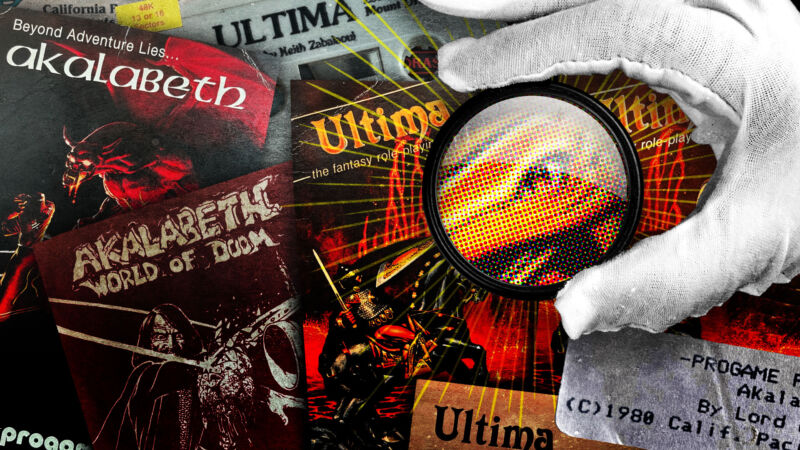
Before last month, Enrico Ricciardi was one of the most respected members of a niche community of classic PC game collectors, with a practically unrivaled collection of rarities that he regularly bragged about on social media. Today, he’s a pariah in that community, the central figure in a wide-ranging alleged forgery scandal that has changed the way many collectors look at their hobby.
At least seven PC game collectors have publicly or privately identified dozens of suspected forgeries they say Ricciardi traded or sold as far back as 2015 and as recently as last month. Collectors estimate that those trades and sales include games that would be valued at well over $100,000 total on the open market if they were authentic.
Ricciardi told Ars he is also a victim who simply unknowingly passed along suspect collectibles without checking them thoroughly enough. Regardless, the overwhelming evidence suggesting that there are many forgeries circulating through the world of rare PC games has shaken the trust of that community to the core.
“It’s like finding a double agent in an intelligence organization,” collector Dan Chisarick told Ars. “He knows the holistic value of classic games and the kind of damage that fake copies can cause.”
A rift in the community
The world of PC game collecting has yet to attract the kind of eye-popping, seven-figure-dollar sales seen with some rare Nintendo games. Still, a committed collecting community has developed around older PC titles, with some people paying thousands of dollars for intact disks, packaging, and materials of computer games from the ’70s, ’80s, and ’90s. Collector Stephane Racle told Ars that games that used to sell for tens of dollars now routinely go for “hundreds” on sites like eBay.
“PC game collecting is niche, but it’s growing because console collectors are finishing their collections and looking for the next frontier,” said Joel McCoy, founder of the 6,000-member strong Big Box PC Game Collectors Facebook group (BBPCGC). “And there are few games as rare as old PC games.”
“You kind of assume that everything you get is legitimate.”PC game collector Stephane Racle
The members of the BBPCGC group are “generally friends,” Racle said, and they are happy to share their big finds and arrange trades or purchases with fellow members (McCoy made it clear to Ars that the group does “not take any responsibility for transactions among members,” though). Trading in a “fairly congenial sort of community” like that, “you form relationships with people” that aren’t possible when buying from random eBay sellers, Racle said. “It’s not all about money… You [sometimes] get two people who agree on a trade, and no money changes hands… You kind of assume that everything you get is legitimate.”
This used to be the center pieces of my collection. Rare and expensive old games.
Now it turns out I‘ve been scammed and sold forgeries by a well known figure in the Ultima and tetrogames community. Along with many others#ultima #akalabeth @RichardGarriott pic.twitter.com/wuiAQPSuG2— Dominus of Exult (@Dominus_Exult) May 30, 2022
Collectors told Ars that this is an assumption they will no longer make. On May 30, the BBPCGC published an extensive set of documents outlining evidence of forgeries within three members’ collections, all tied to trades and sales made by Ricciardi. Ars also reviewed similar evidence recently published by Racle (who was coincidentally investigating some of his own items without knowledge of the wider BBPCGC investigation) and provided privately by other collectors, some of whom asked to remain anonymous.
Speaking to Ars, McCoy made it clear that while all of these alleged forgeries came through Ricciardi, the BBPCGC can’t say for sure that Ricciardi was the one actually making them. McCoy said the group’s investigation was focused exclusively on whether Ricciardi was “selling and trading fake games.”
“That was proven and is grounds enough to be ejected from the group,” McCoy said.
“I believe [Ricciardi] should have been able to spot fakes,” he added.
https://arstechnica.com/?p=1858275

